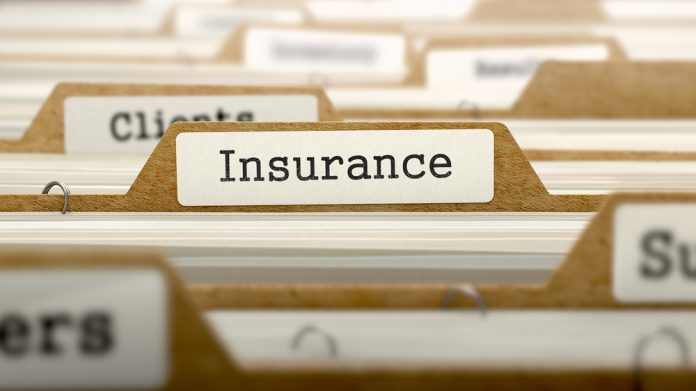Whether it’s a side hustle, or a full time job, an increasing number of Americans are running a small business out of their home. Recent research has revealed that there are 38 million home-based businesses in the U.S.A., with a new venture being started every twelve seconds.
Many different kinds of businesses can be run from home and even those with low startup costs are capable of generating comfortable incomes. But like any other business, they still come with risks.
The smaller the business, the less likely it is its owner will have some form of business insurance in place, putting their hard-earned income at risk, and much more.
Here are some examples of home-based businesses and why they might need specific types of liability insurance.
Yoga instructor
Hiring space to hold yoga classes isn’t always ideal. It can be expensive, the space may lack ambience, and availability may also be an issue if other people use the space. The solution? Classes held in the comfort of a yoga instructor’s own home, which fit in to their schedule, also saving them money.
During set up for an early evening hatha yoga class, you hear a crash behind you. One of your students has had a nasty fall after tripping over a rolled-up yoga mat that wasn’t put away at the end of your last class. They have to head for the hospital where x-rays show they’ve broken their wrist, putting them out of action for weeks. Because they can’t work, and feel it’s your fault, they decide to sue.
General liability insurance policies protect a business against injury to third parties and their property, so you may be covered if a client visiting your property is injured and claims it’s due to negligence on your part and decides to sue. It’s worth bearing in mind that the average slip or trip claim payout comes in at $20,000, plus another $50,000 in legal fees. With general liability insurance, your insurer could pay those legal fees, and compensation, if necessary.
Marketing consultant
These days, most businesses won’t get by without some form of marketing and social media activity. While it’s become an intrinsic part of most business strategies, many business owners struggle to find the time and resources to manage their marketing adequately and will often turn to a freelance marketer to help.
Start-up costs may be low – all you really need to get a freelance marketing business off the ground is a home office equipped with a computer, internet access, and a phone – but the risks are high:
Halfway through a busy week, one of your clients calls for an update on a campaign. They’re in the middle of their big annual sale and this campaign is key to their online promotion. You suddenly realise you forgot to put a key date in your diary, which means the campaign wasn’t launched as agreed. Having missed what has, historically, been their most successful sales period, your client sues, holding you accountable for loss of income.
Mistakes happen. It’s why errors and omissions insurance (also known as professional liability insurance) is recommended for service-based businesses. If you make a genuine mistake, and a client tries to make a claim against you, your insurer may be able to come to the rescue:
Your client calls explaining they’ve received notice that they’re being sued for copyright infringement. Turns out the images they supplied for a campaign you built were someone else’s intellectual property. You weren’t aware of the copyright issues, but despite this, your client tries to pin the blame on you.
Errors and omissions insurance can help you defend yourself against these types of claims, too.
Graphic designer
Graphic designers are in high demand. Whether it’s designing flyers for a local business, or creative for multimedia ad campaigns, home-based designers can bring in business from down the street and across the globe.
One morning at your workstation, you spill a cup of coffee, frying your expensive PC and graphics tablet in one fell swoop. To replace them both will cost more than $5,000. It’s money you simply don’t have to spare, but without replacing them, you won’t be able to generate any income. To make matters worse, you risk losing clients by having to put their projects on hold.
Business personal property insurance covers the contents of your business, like office technology, as well as fixtures, furniture, or merchandise. It means that if you damage a piece of equipment that’s essential to running your business, you can replace or repair it, and get back on your feet more quickly.
Accountant
Accountants access personal details and sensitive financial data on a daily basis for all of their clients, which unfortunately makes them an attractive target for cybercrime. They are at risk of lawsuits and hefty fines if they find themselves a victim of an attack and haven’t secured their clients’ business-critical information.
Cyber attacks on small companies are increasing year on year and many businesses simply lack the knowledge and tools to keep their data safe. While any business can become a victim, those who hold their client’s sensitive financial data are more obvious targets.
An invoice from what appears to be a well-known company lands in your inbox requesting payment to one of your clients. Thinking nothing of it, you click the link. But something’s not right. You realise the invoice wasn’t from a legitimate company and that you’ve just fallen victim to a phishing attack. It’s infected your computer with malware, which has compromised your clients’ financial data.
Cyber liability insurance can’t prevent cyber attacks, but it can provide you with the expert knowledge and financial help to recover from one. Picking up the pieces after a data breach takes time. Just one instance of identity theft takes around 400 hours to put right – time that would be far better spent running your business.
Insurance can’t stop accidents or prevent mistakes, but it can save your home business from financial disaster if something does go wrong.
As well as protecting your business with liability insurance, check out our other top tips on reducing your business risk.
Find a Home-Based Business to Start-Up >>> Hundreds of Business Listings.

















































